When you're looking to establish a solid relationship with a new vendor, a reference check can be a crucial step in the process. It's always helpful to gather insights from others who have worked with them, ensuring you make an informed decision. In this article, we'll explore how to craft an effective letter template for requesting vendor references that is both professional and approachable. So, if you're ready to strengthen your vendor selection process, read on for our step-by-step guide!
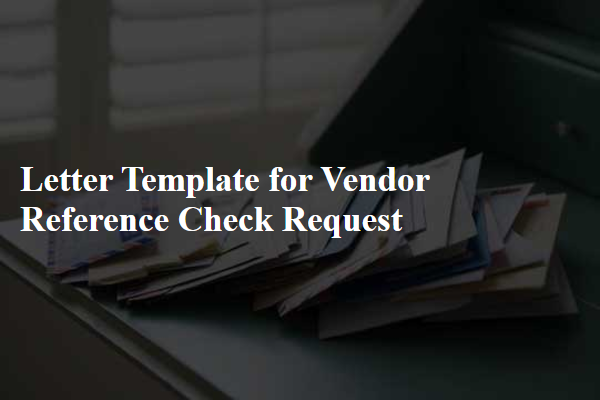
Vendor contact information
When conducting a vendor reference check, it is essential to collect detailed vendor contact information, such as business name, primary contact person, email address, phone number, and physical address. This information facilitates direct communication with vendors who have previously engaged with the supplier in question. Having specific details, like the length of the partnership and services provided, ensures a comprehensive understanding of the vendor's performance. Transparency in this process builds trust and validates the credibility of the vendor being assessed. Gathering this data not only helps in making informed decisions but also streamlines the verification process, ultimately contributing to successful vendor management and selection.
Request purpose and details
A vendor reference check serves as a critical evaluation method to assess a supplier's reliability and quality. This process ensures that potential vendors meet standards of performance and credibility before contractual agreements are established. Key data points in this evaluation include previous contract values, duration of the partnership, nature of services rendered, and any documented incidents of service or quality issues. In addition, feedback on the vendor's communication effectiveness and their ability to resolve disputes is crucial. Typically, this reference check involves reaching out to at least three previous clients of the vendor to gather insights on their experiences within recent years, ensuring up-to-date evaluations of the vendor's operational capabilities.
Specific questions about performance
During the vendor reference check process, it is essential to gather valuable insights regarding the performance of the vendor in various aspects. Key performance metrics such as on-time delivery rates, typically measured in percentage, can reveal reliability. Quality of goods received (often assessed through defect rates, expressed as a percentage of total shipments) provides important information on product standards. Additionally, responsiveness to inquiries and issues can be quantified by average response time (in hours or days), illustrating communication efficiency. It is also beneficial to investigate how effectively the vendor adheres to agreed-upon service level agreements (SLAs), including metrics on uptime guarantees or support response times. Lastly, customer satisfaction ratings, which can be collected through surveys or Net Promoter Scores (NPS), give a clearer picture of overall client contentment and vendor performance in real-world scenarios.
Deadline for response
A vendor reference check request is a formal inquiry sent to clients or partners of a vendor to evaluate their past performance and service quality. This request typically includes a deadline for responses to ensure timely decision-making. For example, a deadline of five business days from the date of the request may be specified. The request should highlight critical evaluation areas, such as punctuality in deliveries and quality of goods or services. Including specific details about the vendor, such as the company name, nature of the services provided, and duration of the business relationship enhances the context and specifies the references required.
Contact information for follow-up
A vendor reference check request typically includes key details, such as the vendor's name, the scope of work performed, project duration, and the specific services provided. Key contact information is crucial for follow-up, ensuring clear communication. Examples may include the name of a primary contact, their position (such as Project Manager or Procurement Officer), email address, and phone number. These elements help verify the vendor's reliability, quality of service, and ability to meet deadlines in various projects, enhancing decision-making processes for potential partnerships.

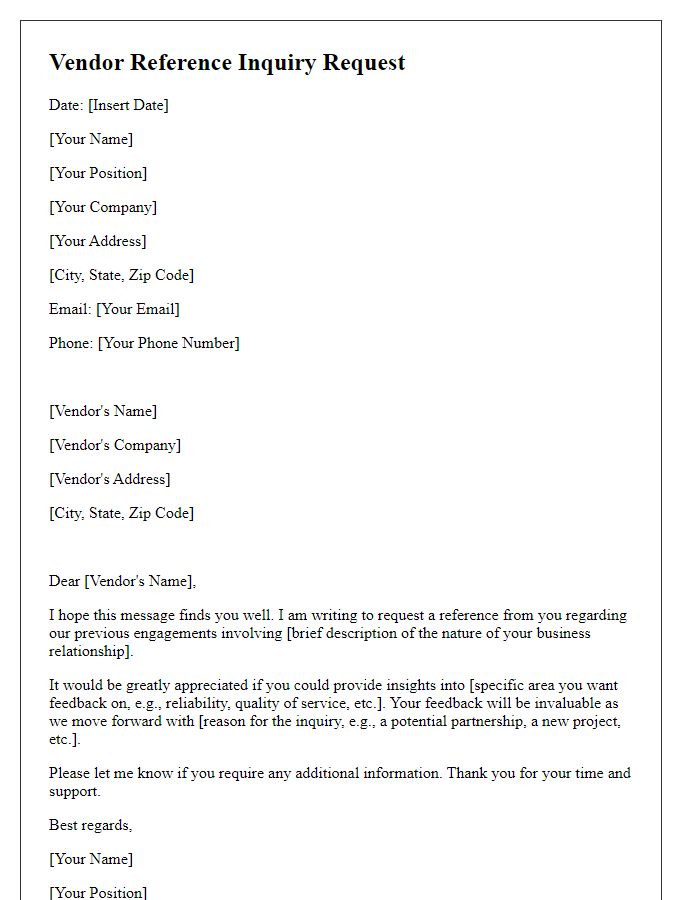
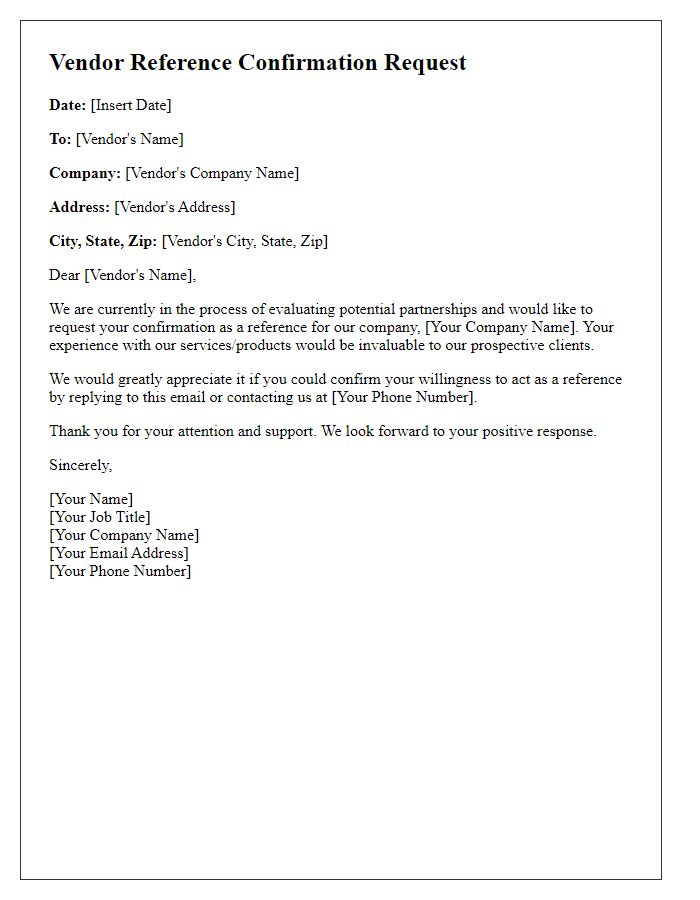
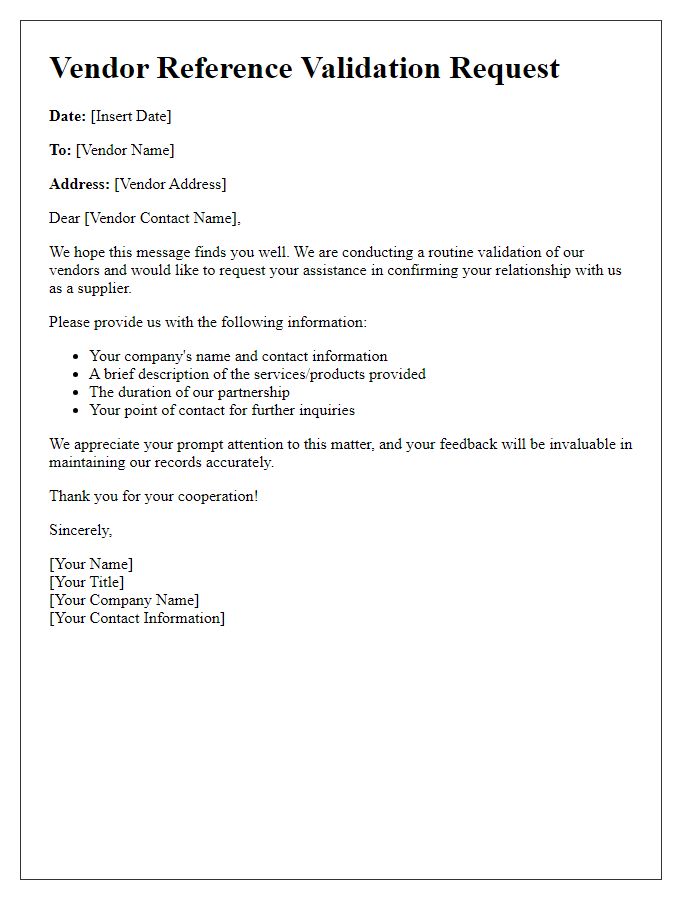
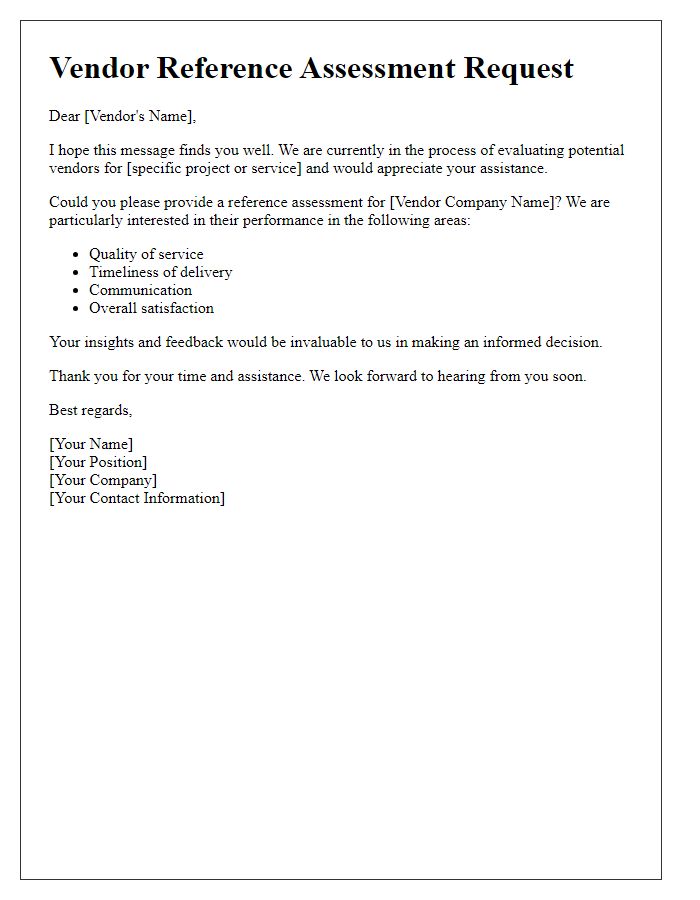
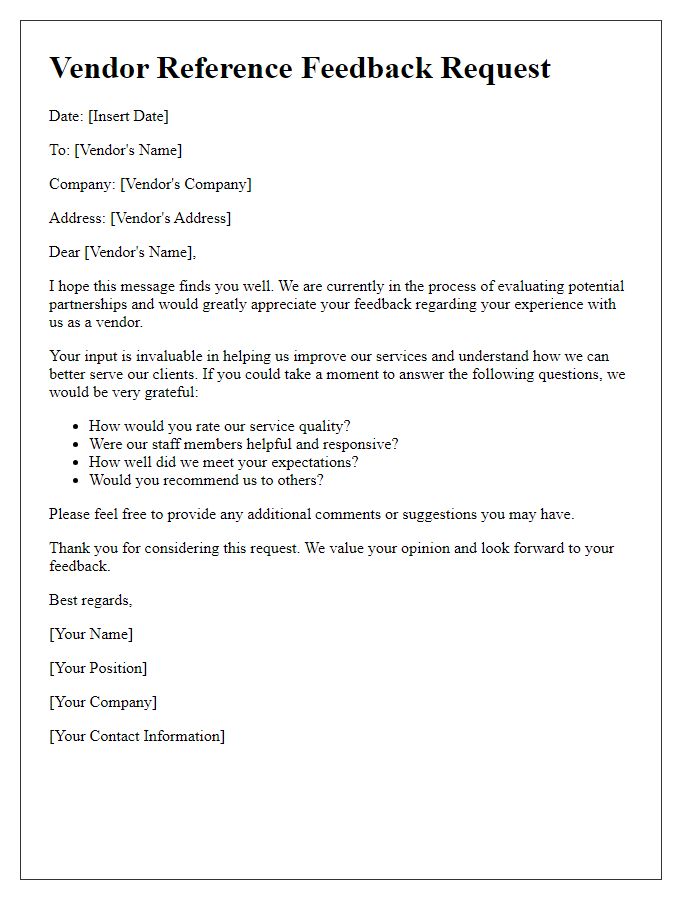
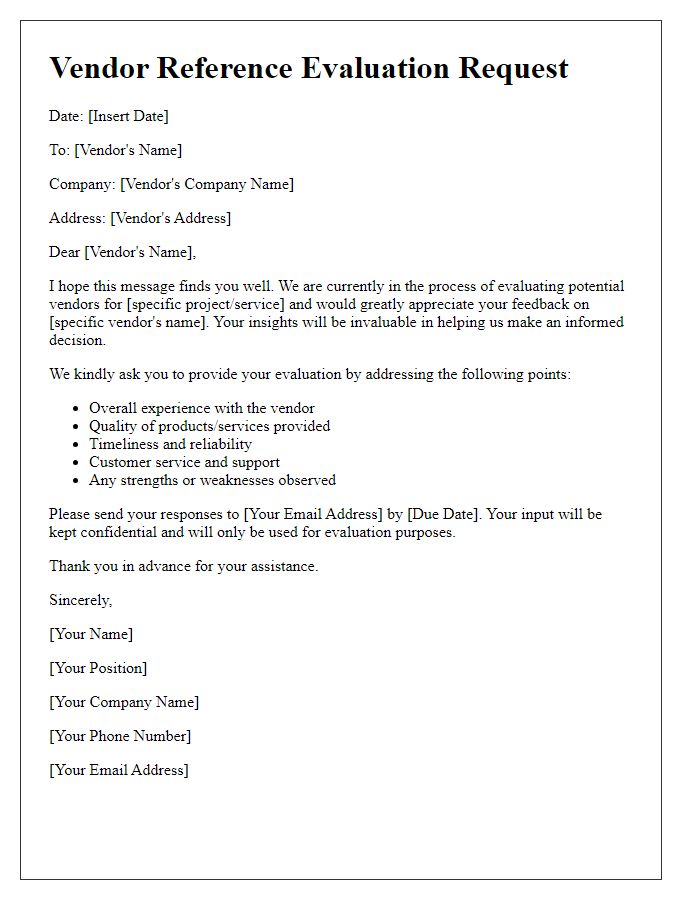
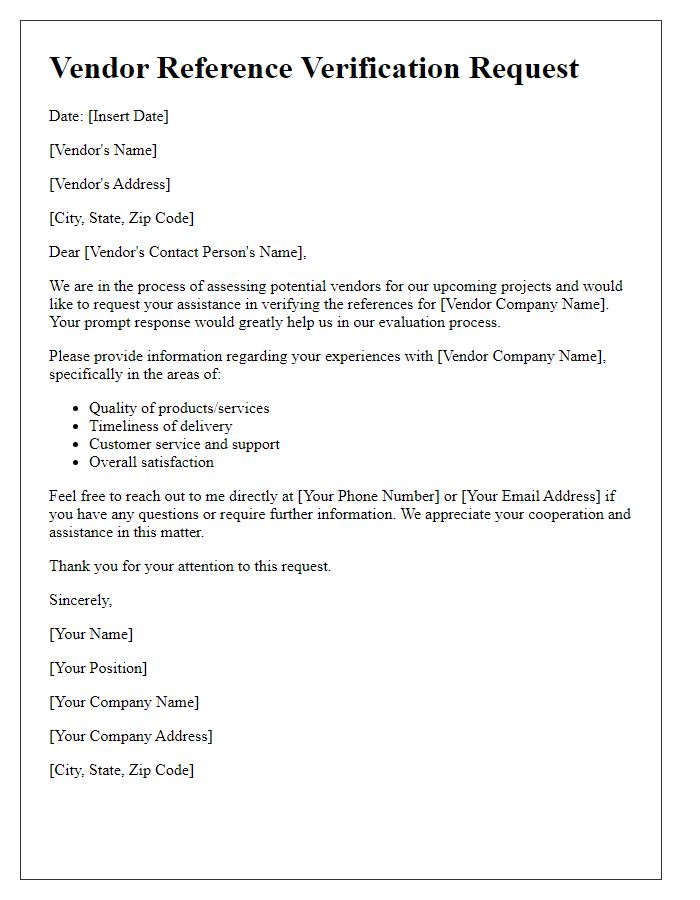
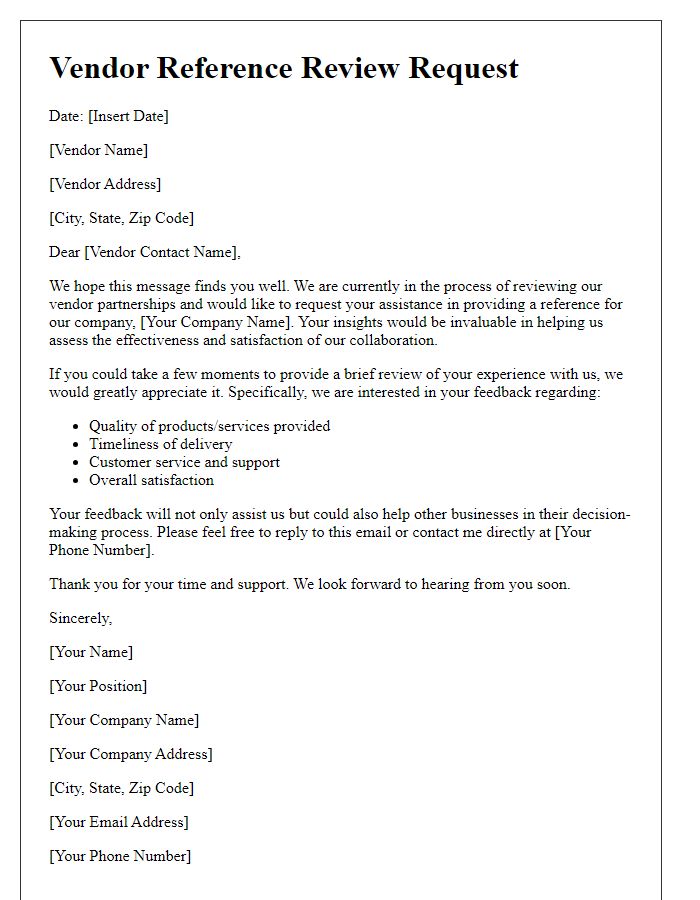
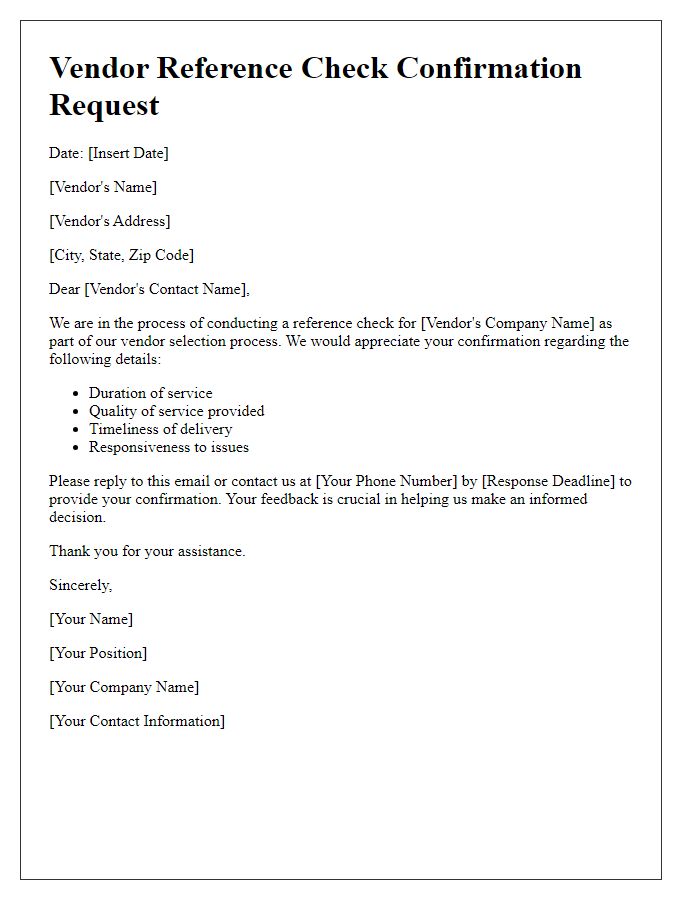
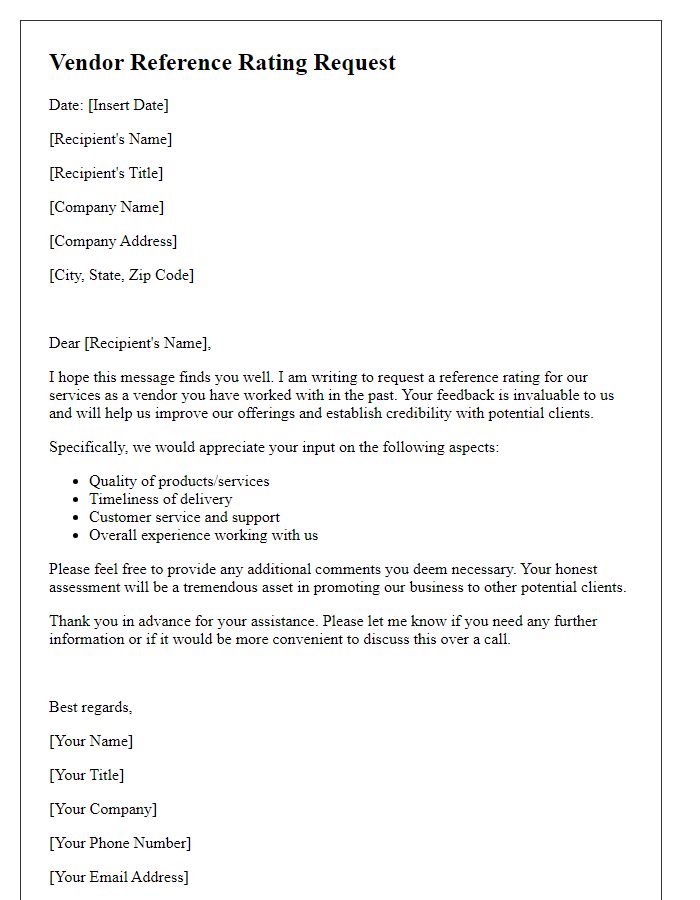

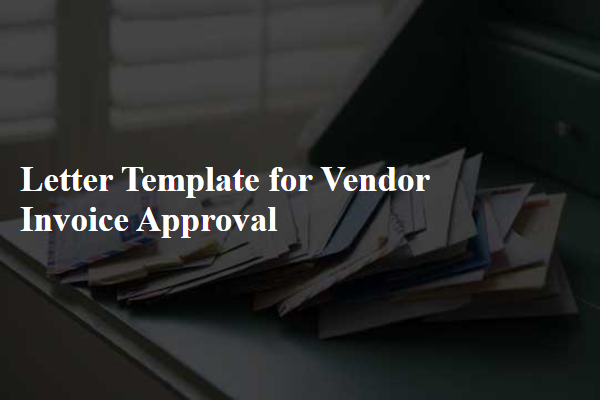
Comments